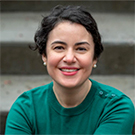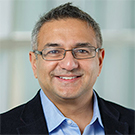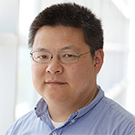Faculty Elections 2024-25
Faculty Senate Elections will be held beginning Friday, May 3, 2024 and closing Tuesday, May 14, 2024. Below is a list of the open seats. Select the open seat to view statements from the faculty running for the position.
- Faculty Senate: At-Large Senator (2 seats)
- Faculty Senate: At-Large Senator (1-year replacement)
- Faculty Senate: Division of Creative Arts - School of Arts and Sciences
- Faculty Senate: Division of Science - School of Arts and Sciences (2 seats)
- Faculty Senate: Division of Social Science - School of Arts and Sciences
- Faculty Senate: Emerita/us
- Faculty Representative to the Board of Trustees (3 seats)
Faculty Senate: At-large Senator (2 seats)
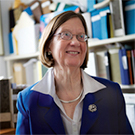
What would I bring to the Brandeis Faculty Senate? I teach in the Heller doctoral program and in the Executive MBA for Physician Managers, advise masters students, and have taught in HSSP; I directed the Heller PhD Program for almost a decade; and have conducted grant-funded research in the economics of health policy, health workforce, and economics of aging for more than forty years. I sing in a chorus and a church choir, and my favorite places on campus are the statue of Louis Brandeis, the view from Heller’s Zinner Forum, the Rose, and wherever the Lydians are playing.
If elected as an at-large member, I would be honored to join a Senate that works to discern how we can more fully realize Brandeis’ historic values in a changing environment.
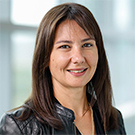
During my time in the Senate, I have actively participated in the Shared Governance and Community committee this past year, as well as the Faculty Salary and Budget Priorities committee in the previous year. Together, we have achieved significant milestones, including changes to the faculty handbook, optimizing voting and meeting procedures for our evolving reality (such as the possibility for virtual participation in faculty meetings), to provide a voice for all faculty on issues.
Given my dedication to fostering inclusive governance and amplifying faculty voices, I would be honored to continue serving by being elected as an At-Large Representative to the Faculty Senate, thereby contributing to the strengthening of our community and ensuring that all faculty members have a voice in shaping our collective future at Brandeis.
Faculty Senate: At-Large Senator (1-year replacement)
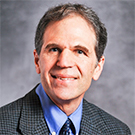
Faculty Senate: Division of Creative Arts - School of Arts and Sciences
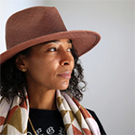
I come from a family with a strong tradition of activism and civic engagement. Throughout my life, I have participated in various grassroots causes as well as formally structured organizations. More recently, my community organizing has focused on police brutality as I have actively supported organizations such as Mothers Against Police Brutality during its founding years in Dallas, TX, and ran communication campaigns for other local political organizations. During Freedom Summer 2020, I chaired the communications committee of a regional In Defense of Black Lives coalition. From serving in leadership roles to contributing as a dedicated member of organized groups, I have garnered invaluable experience that has prepared me to represent our faculty effectively in the Senate.
An activist ethos informs my teaching, cultural production, and cultural organizing. As a faculty member in Fine Art, affiliated with African and African American Studies, I am committed to enabling the next generation of changemakers through critical pedagogy and experiential learning. My socially-engaged public projects promote racial and historical justice through symbolic and material interventions, as well as cultural critiques. During a 2013 lecture on creative activism at a conference in Copenhagen, Stephen Duncombe, an NYU professor and cofounder of the Center for Artistic Activism, identified my work as “ethical spectacle.” Ethical spectacle, a term he coined, refers to “the tactical and strategic use of signs, symbols, myths, and fantasies to advance progressive, democratic goals.” This has inspired a framework that situates my “artist as citizen” practice.
At the core of my cultural and pedagogical practice lies a commitment to “group-centered leadership” and collaborative production as potent political strategies. I view my role as an artist and professor not merely as a directive position, but rather as a facilitator of collective empowerment through problem-solving and solution-building. Grounded in feminist and anti-racist facilitation practices, my approach is underpinned by dialogical processes of knowledge production and consensus-building, emphasizing inclusivity, accessibility, and diverse perspectives. My experiences have instilled in me a deep appreciation for the importance of inclusive decision-making and transparent communication.
Participating in university service allows me to utilize not only my organizing skills but also my multimodal and interdisciplinary experiences, along with creative methodologies developed over the past 20 years, in service of students and colleagues. I am inspired to collaborate with colleagues to refine established structures and develop new ones. To date, I have chaired the studio department’s curriculum committee and served on the Independent Interdisciplinary Major subcommittee, as well as on the Data Science Curriculum and Learning Management System Migration Steering committees.
While my official appointment began in spring 2020, my physical presence on campus amounts to only 2.5 years. The Faculty Senate plays a crucial role as a forum for cultivating consensus, driving positive change, and upholding the principles of academic integrity and shared governance. It is with this understanding that I aim to further root myself in the Brandeis community. I look forward to advocating for the needs of our faculty, fostering meaningful dialogue on campus issues, and contributing to initiatives that help build our institution to its highest potential.
Faculty Senate: Division of Science - School of Arts and Sciences (2 seats)
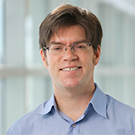
I am a faculty member in the Department of Physics. For most of my career my work has been in theoretical high energy physics and quantum gravity; in recent years I have been working in physical oceanography and the physics of climate. In my experience, Brandeis’ remarkable innovation in research and education has stemmed from the creativity, dedication, and hard work of its faculty, postdocs, and students who have had the freedom to pursue novel directions and to build communities which support them. This is a core feature of what academic freedom means and what it is for. To this end I particularly hope to work on two issues. First, in view of the current budget crisis, it is crucial that the faculty have significant input into any programmatic changes in and restructuring of the University. Second, academic freedom is useless unless faculty and students have the time to develop and pursue their ideas. However, many of us have felt an increasing administrative load on our time; this needs to be addressed if we are to maintain Brandeis’ signature combination of depth and innovation in research and teaching.
Faculty Senate: Division of Social Science - School of Arts and Sciences
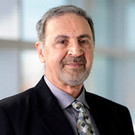
I have conducted research on the labor market conditions for university graduates in the U.S. and emerging market economies. If elected, one of the initiatives that I would like to undertake is to encourage the faculty senate to discuss the employment prospects and market conditions for the undergraduate and graduate degrees that are awarded in Brandeis. Monitoring the labor market conditions for our graduates will become even more important in the coming years as the introduction of new artificial intelligence capabilities will disrupt the labor market for many university skills.
Faculty Senate: Emerita/us
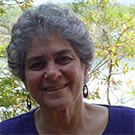
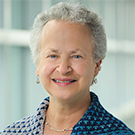
After working as a public school teacher, high school principal and superintendent of schools, I became the Harry S. Levitan Director of the Education Program in 2001. Working with colleagues, we were able to strengthen the Teacher Education program, create the Education Studies major and minor, as well as the graduate Teacher Leadership Program which will welcome its tenth cohort this summer. I served as a Faculty Senate representative and as a member of the university committee that examined how to strengthen the status of contract faculty. I became an emerita faculty member almost 3 years ago, although I continue to work on a volunteer basis with the Teacher Leadership Program. The Education Program continues to be a key part of the university under its current strong leadership.
These are not easy times for higher education. There are no quick solutions to solve the numerous challenges. What I do believe, however, is that we will only find sustainable solutions if the faculty is a key part of the dialogue and decisions.
Faculty Representative to the Board of Trustees (3 seats)
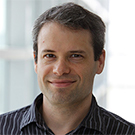
I would be delighted to have the opportunity to continue to serve as a faculty representative to the Board of Trustees.
For those who do not know me, the following experiences have formed my perspectives about Brandeis: I have taught small graduate classes and large undergraduate classes of 200 students. I mentor graduate and undergraduate researchers and advised first-year undergraduates for the majority of my 16 years at Brandeis. I have served both as undergraduate advising head for my department, and as chair of graduate admissions for several years. I have chaired or been a member of search committees for tenure track and OTS faculty in my department and others, ad hoc tenure committees and the Tenured Promotions Committee. In the last few years, I have learned a lot from colleagues across A&S, Heller, IBS and Rabb through faculty meetings, my service on searches for members of the university administration, taskforces, prize committees outside of my field, and on the Committee for Strategic Planning.
As an interdisciplinary researcher straddling fields of Chemistry, Biology and Biochemistry, I constantly interact with members of multiple departments and place a high value on collaboration and cooperation. Although my professional academic expertise is limited to the natural sciences, I was raised with a strong appreciation for other fields of research and the for the arts, literature, and foreign languages. My father was a linguist in the field of Alaskan indigenous languages and preservation of endangered languages, and I spent much of my youth in Alaska surrounded by his linguist and anthropologist colleagues. I have played the violin since the age of five and am still an extremely avid chamber musician and performer.
With this background, I believe I am qualified at least to listen to and communicate broad faculty perspectives to the Board. For example, one concern is that the University must navigate financial headwinds without losing its most precious resource: our faculty. We underpin the University’s scholarly reputation, and its value in the marketplace for students. While it is a reality that resources are limited, cuts that drive away our most talented faculty damage this value and are very expensive to repair through new hires. If re-elected, I will continue to convey this and other broad concerns to the Board.
